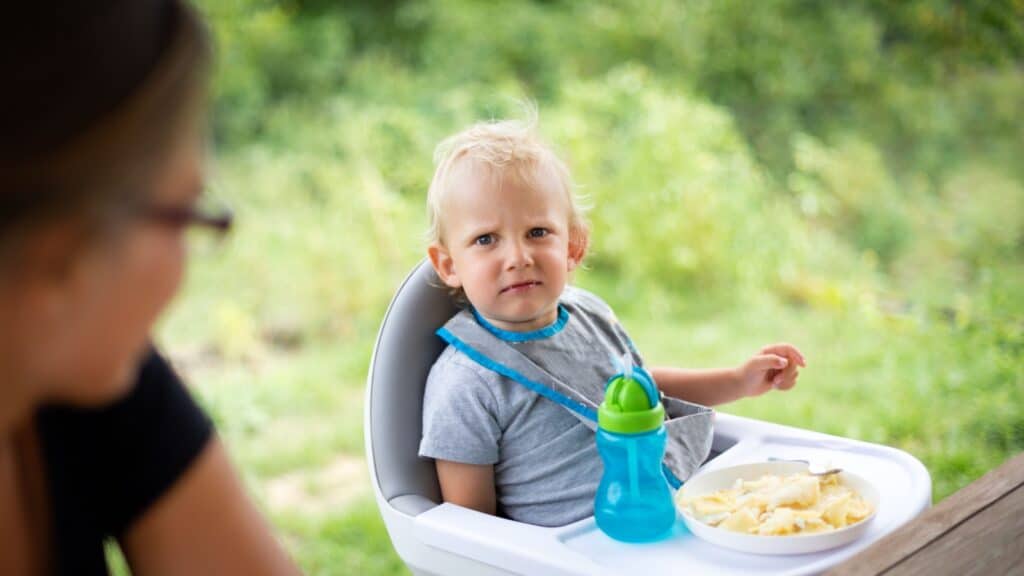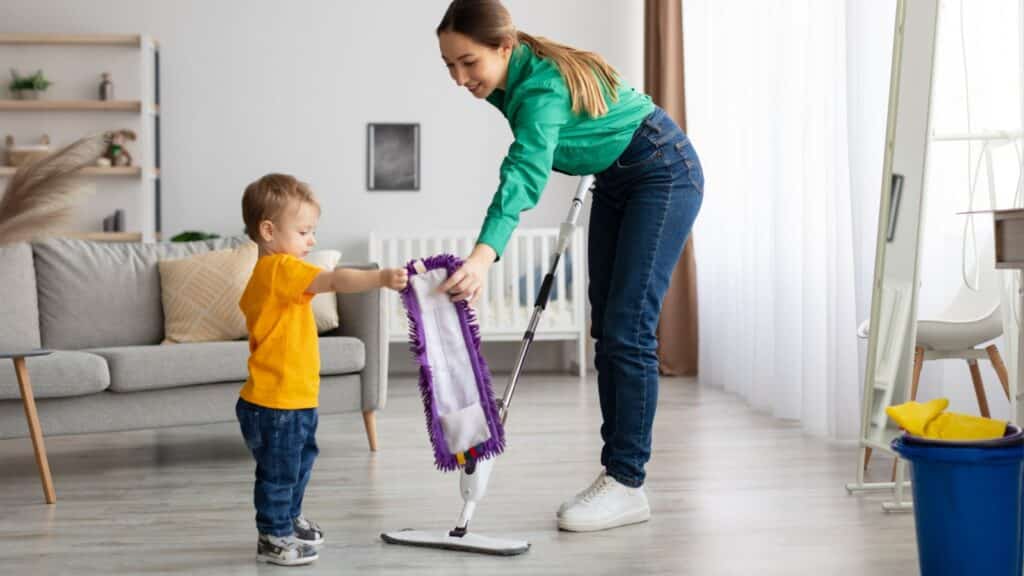Parents have a secret language that is as calm as it is quick. It also comes with a sense of authority. Without shouting, they’re able to say things that make everyone fall in line, and we’re going to look at some of the best phrases they use to maintain a sense of control. Have you used any of these or know anybody who has?
“Let’s check the calendar before we say yes.”

Telling someone, “Let’s check the calendar before we say yes,” is a way of avoiding making promises that you can’t keep. Parents will pull out their phones and check the dates before agreeing. Doing so stops them from double-booking while also giving them a sense of pure control.
“I’ll think about it and get back to you at five.”

Yes, saying, “I’ll think about it and get back to you at five” is firm, but it’s also fair. Parents who do this have mastered the art of pausing. They’ll buy a little time to check prices and text the other parent, or sometimes, just to breathe. When 5:00 rolls around, their answer sticks in a way that truly seems confident.
“Phones on the counter by 9:00.”

So many parents refuse to give speeches or warnings, but instead, they’ll say something like, “Phones on the counter by 9:00.” Nobody argues with this because the rule is simple and visible. When the phone’s not on the counter, it won’t be charged tomorrow, and such a rule makes sure that people aren’t scrolling for too long.
“Use your money. Mine’s for groceries and rent.”

A saying like “Use your money. Mine’s for groceries and rent,” makes a clear line between needs and wants. The parent keeps the budget on track, and the kid learns what spending really feels like, giving them a clear reminder of priorities. Teaching them the difference between “fun money” and “bill money” this way teaches them better than any lecture ever could.
“That’s a tomorrow problem.”

Telling a child, “That’s a tomorrow problem,” keeps small problems from eating up sleep, and parents use it when everyone’s tired and nothing productive’s happening anymore. It could be a missing shoe or a forgotten permission slip. Either way, it all gets bumped to the morning list, and such a phrase resets the house energy immediately. Finally, bedtime wins.
“Two bites, then you can decide.”

The two-bite rule gives picky eaters a sense of structure without turning it into an argument. Parents will say, “Two bites, then you can decide,” and this helps because some kids discover they actually like the thing. Sometimes, they don’t. Either way, dinner doesn’t end with tears or threats, and it’s over rather quickly.
“We leave at 7:40, whether shoes are on or not.”

Setting a time-based boundary by saying, “We leave at 7:40 whether shoes are on or not,” eliminates morning nagging, especially because the parent means it. Once kids see that this actually happens, they start watching the clock themselves, and the rule works because it’s consistent, not loud. The natural consequence, showing up late once, usually fixes the problem permanently.
“We don’t talk to each other like that. Try again.”

Whenever a parent wants to reset the tone without yelling, they’ll say, “We don’t talk to each other like that. Try again,” because it stops the whole exchange. The point isn’t punishment. Rather, they’re trying to keep a sense of respect in everyday conversations. Such a calm tone often cuts the tension rather quickly and stops tempers from escalating.
“I’m not arguing. We’ll talk when voices are calm.”

A similar saying parents use is, “I’m not arguing. We’ll talk when voices are calm,” which shows that the parents refuse to continue until everyone cools off. There are no more endless back-and-forths. Instead, just a sense of being patient until everyone’s calm again, and the discussion actually gets somewhere instead of looping in circles.
“A or B. You pick.”

Parents give their children controlled choices by saying, “A or B. You pick.” Both options work, so whatever the kid picks is fine, which completely prevents power struggles and teaches kids a sense of decision-making at the same time. Of course, kids still get a say. But there’s no argument about the options, and everyone moves on, so the parent can save their energy for bigger issues.
“You can be upset and still brush your teeth.”

It’s natural for emotions to cause issues at bedtime, and that’s where the saying “You can be upset and still brush your teeth” comes in useful. It keeps the routine moving. The night ends in a calmer way because the tasks themselves no longer depend on mood, so bedtime doesn’t drag on for an hour. It’s a small sentence that saves the whole evening.
“Go look it up and teach me.”

Rather than handing over an answer, the parent flips the responsibility by saying, “Go look it up and teach me,” which makes the child find the information. They have to explain it out loud, and they learn twice in the process. That’s not to say that the parent is being unavailable, but rather, that they’re being hands-off. Everyone gets to feel productive with this one.
“Ask for what you need in a full sentence.”

Parents say, “Ask for what you need in a full sentence,” to replace yelling from the hallway, as such a sentence forces clarity. Who? What? When? Now, vague cries for help have become specific requests that can actually be answered, which is particularly important during busy moments when multiple things are happening at once.
“If it’s not on the list, it doesn’t go in the cart.”

A grocery rule keeps budgets in line, as saying something like “If it’s not on the list, it doesn’t go in the cart” means that the list decides, not the impulse. It saves money and avoids long debates over snacks in front of the freezer aisle. Do it enough times, and the pattern becomes completely normalized, so kids eventually stop asking.
“I’m setting a timer. When it rings, we switch.”

Some parents say, “I’m setting a timer. When it rings, we switch.” This is because using a timer cuts through the back-and-forth about who gets the next turn, and when the alarm goes off, everyone knows the handoff happens. There’s no discussion, and no extra minute. It works for chores and video games, or even sharing the TV.
“Start homework at the table. I’ll cook beside you.”

It’s a good idea to say something like, “Start homework at the table. I’ll cook beside you,” because it means the questions get answered in real time without any need for shouting across rooms or hiding unfinished pages. The setup keeps kids focused, but they’re still part of family noise. When the food’s ready, homework’s done, and nobody’s scrambling at bedtime.
“We lend tools, not responsibility. Return it by six.”

Some of the best parents make sure that everything has a place, like the screwdrivers or the rakes. They make sure to keep track without hovering by saying, “We lend tools, not responsibility. Return it by six.” If something goes missing, then borrowing has to stop for a while, as this is simply how the system stays organized.
19 Things Our Parents Did That Would Be Called ‘Neglect’ Today

’70s, ’80s, or even ’90s parents did not hover over us or track our every move. They just handed us over a bike, a key, and some vague advice: “Don’t die.” And somehow we lived to tell the tale. Here are things our parents did that would probably land them on a parenting “no-no” list today.
19 Things Our Parents Did That Would Be Called ‘Neglect’ Today
18 Lessons We Should Teach Our Kids Before They Turn 18

So, what exactly do we teach them? Here are 18 lessons we should teach before our kids turn 18. These are the hands-on and day-to-day skills that’ll save your kids from many disasters.
18 Lessons We Should Teach Our Kids Before They Turn 18

